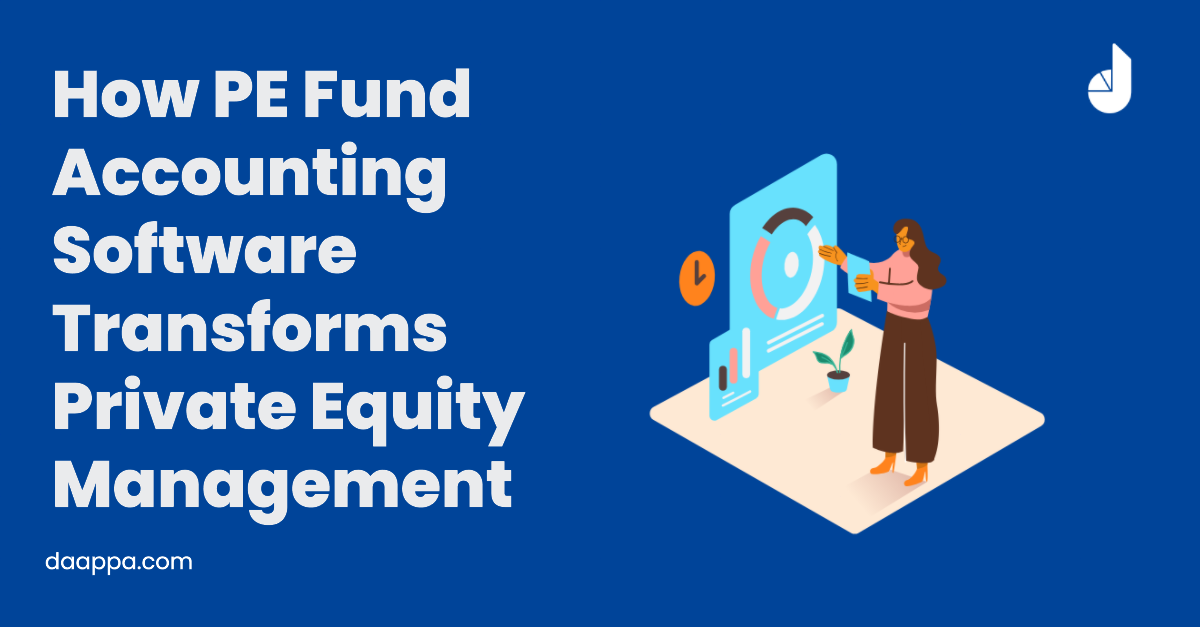How PE Fund Accounting Software Transforms Private Equity Management
In today’s competitive private equity (PE) landscape, precision and performance are inseparable. Fund managers are under mounting pressure to deliver transparency, maintain...
Luxembourg has cemented itself as a global hub for fund administration, particularly in private equity. Renowned for its regulatory stability, strong investor protection, and favourable business environment, the country provides a robust platform for private equity investments through both corporate and partnership structures. However, the increasing cost pressures, regulatory complexities, and investor demands for transparency have made operational efficiency and cost-effectiveness a core focus in fund administration. This whitepaper explores how Luxembourg fund administrators can achieve these objectives, while retaining the flexibility needed to cater to corporate and partnership funds within the private equity landscape.
Luxembourg's regulatory framework is one of its strongest assets. The country offers several structures for private equity, including Special Limited Partnerships (SCSp), SICARs, and SIFs, providing flexibility to investors to choose the optimal structure based on their investment objectives and risk profiles. This diversity, coupled with the robust Alternative Investment Fund Managers Directive (AIFMD) implementation, ensures a solid compliance backbone, allowing Luxembourg-based funds to market across Europe.
Yet, beyond the regulatory advantages, Luxembourg fund administrators face the pressing challenge of driving operational efficiency and managing costs in an environment of increased competition and growing investor expectations. Adopting effective operational strategies is critical to meeting these demands while leveraging the flexibility offered by the Luxembourg framework.
To achieve operational efficiency, fund administrators must focus on several key areas: technology adoption, process automation, effective talent management, and regulatory alignment. Each of these drivers not only enhances the day-to-day functioning of fund administration but also plays a vital role in reducing costs and ensuring scalability.
Technology adoption is at the heart of operational efficiency. For Luxembourg fund administrators, leveraging technology to streamline processes can significantly cut costs and enhance accuracy. This involves moving away from manual, spreadsheet-based workflows and adopting integrated fund administration platforms.
Key technologies, such as cloud computing, Robotic Process Automation (RPA), and artificial intelligence (AI), are crucial in achieving efficiency. For example, RPA can automate repetitive tasks like investor reporting and compliance checks, reducing the workload on staff and minimising the potential for human error. AI can be deployed to enhance data analysis, improve decision-making processes and enable faster responses to investor queries.
In Luxembourg, many fund administrators are also moving towards distributed ledger technology (DLT), which offers real-time data sharing among stakeholders, thereby enhancing transparency and trust in transactions. This is particularly beneficial for partnership funds, where multiple partners require a transparent view of fund activities.
A key aspect of achieving operational efficiency is the standardisation of processes. Luxembourg's unique environment demands fund administrators align their processes with best practices to reduce redundancy and ensure consistency across different fund types—corporate funds, such as SICAVs, and partnership funds like SCSp.
By standardising tasks such as NAV calculation, compliance reporting, and capital call management, fund administrators can reduce the time and resources needed for each process. This approach not only reduces operational costs but also enables scalability, allowing administrators to handle larger portfolios without a proportional increase in costs.
Furthermore, collaboration between service providers in Luxembourg fosters a community of shared best practices, which contributes to an overall improvement in operational standards within the industry. Fund administrators can benchmark their performance and continuously enhance efficiency through collaborative initiatives.
Operational efficiency and cost-effectiveness are two sides of the same coin. By driving efficiency through technology and process optimisation, Luxembourg fund administrators can significantly reduce their operating costs. However, there are specific strategies that fund administrators can employ to achieve greater cost savings.
One approach to cost reduction is leveraging shared services or outsourcing non-core activities. In Luxembourg, many fund administrators have successfully adopted shared service centres for functions like IT support, compliance, and back-office operations. By sharing resources, these administrators benefit from economies of scale, reducing costs without compromising on service quality.
Outsourcing is another effective way to achieve cost efficiency. Functions such as payroll, regulatory reporting, and even certain aspects of investor relations can be outsourced to specialist service providers, allowing fund administrators to focus on core competencies. Luxembourg's well-developed ecosystem of third-party providers ensures that high-quality outsourcing options are available to meet specific needs.
Another cost consideration in Luxembourg fund administration is tax efficiency. Luxembourg offers various tax-efficient vehicles for private equity, such as the Reserved Alternative Investment Fund (RAIF), which allows for flexible structuring without the need for prior approval by the CSSF. This flexibility enables private equity managers to select the most cost-effective structure based on investor requirements while benefiting from Luxembourg's favourable tax treaties.
By choosing the right fund structure, administrators can minimise tax leakage and enhance net returns for investors, contributing to an overall cost-effective fund administration model.
A distinctive feature of Luxembourg fund administration is the ability to provide tailored solutions for both corporate and partnership funds. The regulatory framework is designed to accommodate diverse investor needs, offering flexibility without sacrificing efficiency or cost-effectiveness.
Corporate funds, such as SICAVs and SICARs, are popular choices for private equity investments that require a corporate governance structure. Luxembourg fund administrators must balance the operational needs of these entities with the regulatory and compliance requirements, ensuring that processes are streamlined without compromising governance.
Automation and standardisation play an essential role in managing corporate funds efficiently. By leveraging integrated governance platforms, administrators can ensure compliance with board requirements, maintain statutory records, and facilitate investor communications, all while maintaining cost efficiency.
Partnership structures, particularly the SCSp, are favoured for their flexibility, particularly in terms of profit allocation and partner rights. Luxembourg fund administrators can optimise operational efficiency in partnership funds by adopting tools that facilitate transparent partner communication, automated distribution calculations, and effective partnership record management.
The use of DLT can further enhance transparency among partners, enabling real-time visibility into the fund's financial performance and activities. This is particularly relevant for private equity funds, where partnership agreements often require complex calculations for waterfall distributions and profit-sharing.
Luxembourg's regulatory environment, while supportive, requires strict adherence to various compliance obligations. Fund administrators must ensure that operational efficiency initiatives do not come at the cost of compliance. In fact, achieving regulatory alignment can enhance efficiency by reducing the risks associated with non-compliance.
Key areas of focus include AML/KYC processes, regulatory reporting (such as Annex IV under AIFMD), and data protection under GDPR. Automation of these processes not only reduces the administrative burden but also ensures that compliance is maintained consistently across all fund types.
The implementation of RegTech solutions is becoming increasingly common in Luxembourg, helping administrators streamline compliance workflows and integrate regulatory updates seamlessly into their operational processes. This alignment reduces the potential for errors and helps maintain investor confidence in the fund’s compliance framework.
The next 24 months represent a critical period for Luxembourg fund administrators aiming to enhance efficiency. The technology roadmap for fund administration should focus on three key areas: digital transformation, advanced analytics, and investor experience.
Investing in digital transformation initiatives, such as moving to cloud-native platforms and adopting modern tech stacks, will enable Luxembourg administrators to remain agile. Cloud technologies offer scalable infrastructure, reducing fixed IT costs and allowing resources to be allocated on-demand.
Advanced analytics tools can be deployed to provide deeper insights into fund performance, risk management, and investor behaviour. By analysing historical data, administrators can identify cost-saving opportunities and improve decision-making processes. Predictive analytics, powered by AI, can also help in forecasting fund activities, aiding in more efficient resource allocation.
Improving the investor experience is crucial to maintaining competitiveness. Implementing investor portals with real-time access to reports, performance dashboards, and communication tools can enhance transparency and investor satisfaction. This approach reduces the back-and-forth between administrators and investors, resulting in faster response times and lower administrative costs.
Luxembourg continues to be an attractive domicile for private equity fund administration, offering a favourable regulatory landscape, flexibility in fund structures, and a mature ecosystem of service providers. However, in an increasingly competitive and cost-sensitive environment, operational efficiency and cost-effectiveness have become imperative.
By adopting a technology-driven approach, standardising processes, leveraging shared services, and optimising fund structures, Luxembourg fund administrators can achieve the operational efficiency necessary to meet investor expectations. Moreover, the flexibility afforded by the Luxembourg framework—whether through corporate funds like SICAVs or partnership vehicles like SCSp—enables tailored solutions that address the unique needs of private equity investors.
The journey towards operational excellence involves continuous improvement, a commitment to technology investment, and a focus on both cost and value creation. Luxembourg’s fund administration industry is well-positioned to lead this transformation, setting new standards for efficiency, flexibility, and investor satisfaction in the global private equity market.
By following these strategies, Luxembourg fund administrators can not only reduce costs and improve operational efficiency but also continue to attract and retain investors by offering a compelling value proposition in an evolving market landscape.

In today’s competitive private equity (PE) landscape, precision and performance are inseparable. Fund managers are under mounting pressure to deliver transparency, maintain...
.png)
Amid rising operating costs and a shortage of experienced talent in Europe’s financial services sector, daappa Ltd and OneNexus Outsourcing Services LLP announce a strategic...

With the introduction of CSSF Circular 24/856 on 1 January 2025, private market fund managers operating in Luxembourg face stricter oversight on NAV calculation errors, investment...